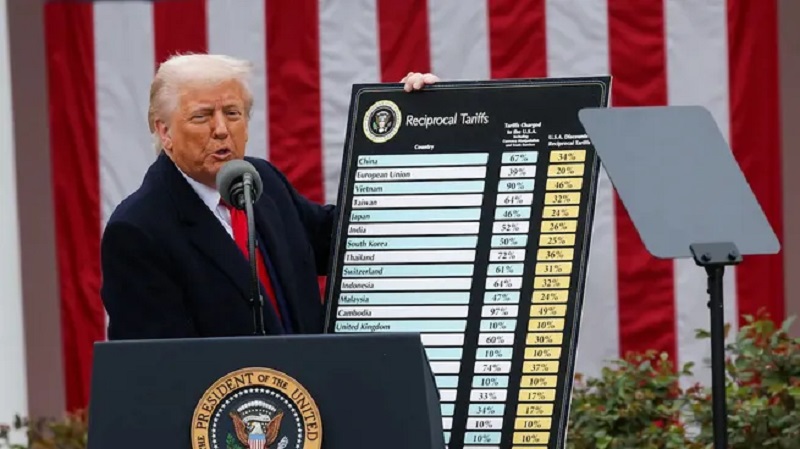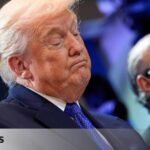
From the gardens of the White House, the American president Donald Trump gave a speech in which he confirmed the implementation, and in some cases the increase, of commercial rates for imports that enter the United States.
LIBERATION DAY RECIPROCAL TARIFFS 🇺🇸 pic.twitter.com/ODckbUWKvO
— The White House (@WhiteHouse) April 2, 2025
These measures deepen the protectionist course that has been carrying out Trump since he assumed on January 20 and means a turn in US state policy that was based on commercial agreements with key countries such as China, or blocks from countries such as the European Union.
This implies strong consequences both internally and worldwide. In the first case, an increase in inflation is very likely due to the increase in imported products. Trump’s speech that these measures are to defend internal production and employment, in practice it has many contradictions since the increase in the value of many imported inputs could even affect local production.
Although in the list of reciprocal tariffs are not Canada or Mexico because it is part -with US imperialism -of the free trade agreement, as it came announcing (and postponing), from midnight (DST -Summer Horary) Imported vehicles will be recorded with 25% of tariffs. It is not clear how it will be done with cars from Canada that are mostly manufactured in that country, but with pieces from Detroit (USA) and several have up to 51% of US pieces, the same or on a larger scale passes with vehicles in Mexico, which in some cases cross the border up to 7 times, to finish being assembled in the Latin country, and then export them to the northern country.
Both the European Union and Mexico and Canada have stated that they will respond with measures similar to those of the United States.
As we propose in the international edition of yesterday Tuesday: “Trump’s tariff measures do not arise in a vacuum. They are a response to decades of relocation of production to countries with cheaper labor, a phenomenon enhanced during the boom of neoliberalism. This migration of productive capacities left entire sectors of the US working class without employment, while companies increased their profit margins. This process was a state policy And Republican, leaving a tendal of workers without work, who are who, years later, turned their frustration against the Trumpist vote. “ But those who will suffer the consequences will be precisely the working class and American popular sectors, since it is the intermediaries of the importing companies that will pay these tariffs, which the entrepreneurs will move to the final prices.
The last time Washington undertook a relatively comparable protectionist wave was almost a century ago, with 1930 Smoot-Hawley tariff harmed the export of American products).
In a section of the speech he presented the retired worker of the automotive industry, Brian Pannebecker, pretending to show the supposed support for these measures of the working class. Pannebecker is the founder of the group “Auto Workers For Trump” in 2024, who militated his campaign to the presidency.
At the international level, a reduction of global exchanges is expected, which is already generating uncertainty in markets with falls from the actions of many business groups. It is estimated that since February 5 billion dollars of stock market capitalization were lost. The United States bags foresee a decline in their actions for Thursday when markets open.
It is vital for the American working class, to start building an alternative of its own to the policies of the mega businessman Donald Trump of the Republican Party, but also of the Democratic Party that while he ruled did not offer any background response in favor of the great popular majorities.
Source: www.laizquierdadiario.com

